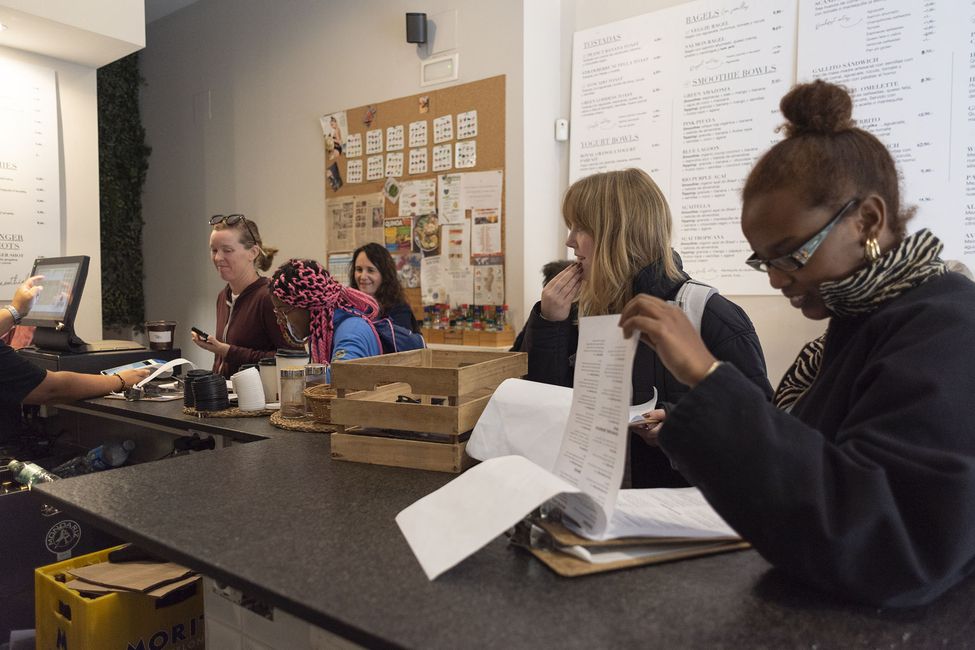How School Counselors Can Help High School Students Study Abroad
During guidance counselor appreciation week, we’d like to show our gratitude for the important role that school counselors play in shaping students’ futures.
Whether you’re scheduling classes, resolving conflicts, or linking families to key resources, school counselors serve as the steady guide helping students overcome the challenges of high school.
When high school students show interest in a study abroad program like a semester abroad, school counselors are there every step of the way to provide guidance.
So, what does a guidance counselor do to support our semester abroad participants on their journey?
1. Provide Academic Guidance for Studying Abroad
Any high school study abroad program comes with the need to prepare, including how to stay on track academically. CIEE recommends that high school counselors have multiple meetings with students with a legal guardian present to prepare them for what to expect.
Students and counselors should discuss and be prepared for the following factors that may arise:
Credits Don’t Directly Transfer
Every country has its own grading system for high school students, which can vary widely from the typical system in the U.S. That means that credits earned abroad may not directly transfer. This can be a plus or a minus, depending on the individual student, their GPA goals, the classes offered by their foreign host school, and their language proficiency (unless their host country is an English-speaking country).
AP and IB Classes Are Not an Option
Students cannot take AP or IB courses while studying abroad. Instead, they can double up during another semester at their home school or take the desired course over the summer or online. Whatever way you arrange it, creating this plan will require extra coordination and may make for extra work during the semester or summer at home.
Students May Need to Miss Class to Get a Visa
Students must not only prepare academically for their high school semester abroad experience but depending on their program, they may also undergo the complicated bureaucratic process of acquiring a foreign visa. This may require students to miss school to attend meetings at a foreign embassy or collect required documents like a passport. High school counselors can help coordinate any missed class time with the students’ teachers and parent(s)/ guardian(s).
Classes Are in a Foreign Language
It’s important that students who are considering studying abroad in a non-English-speaking country realize that they will be taking classes at the local high school with local students in the local language. As their high school counselor, you may recommend that the student’s foreign language teacher advise them on whether or not their fluency is up to par for the experience or what challenges they may face with their current language level. You may want to coordinate a meeting with the student and their language teacher, perhaps including the family, to discuss this aspect of the study abroad experience.
This isn’t to say that students must be completely fluent to study abroad! It’s simply important to be realistic about the challenges of a fully immersive environment. Any negatives can be rightfully countered with the truth that their language skills will undoubtedly improve during this experience, much more so than if they only took language classes in the U.S.
2. Make a Plan to Get All the Credits They Need for Graduation
Unlike in many U.S. high schools, students will not have much control over their course load while studying abroad. This fact, combined with the factors mentioned above, means that students must create a plan to get the credits they need for graduation and their academic goals. CIEE recommends that counselors ask the student to print out and bring the academic guide (available for students in their CIEE account) for them to review together.
Many students plan for their semester abroad by:
- Enrolling in summer courses
- Taking classes online through a program that their home school approves
- Doubling up on courses the semester before or after their semester abroad
3. Remind Students What Documents They Should Request From Their Host School Abroad
Every U.S. high school has different graduation requirements. The school, state, or federal requirements may dictate these. It is important to ensure that the student is prepared and has a plan in place so there are as few surprises as possible and that they meet their graduation timeline and academic goals.
Once students receive their class schedule on their first day of school, you should have them email you their course schedule. Upon completing their semester abroad, they should send you all their host school transcripts and course descriptions.
Thank You, Counselors!
Guiding a student through a high school semester abroad program may feel like a big task, but it builds on the same skills and resources high school counselors use every day.
Supporting study abroad opportunities is a natural extension of a high school counselor’s mission to help students grow academically, socially, and personally—and the rewards for your students are nothing short of life-changing. Thank you for your support!




